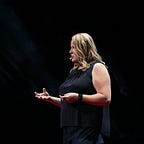Increasing Digital Inclusion In Utah
“The more the tech community understands digital inclusion and the barriers causing digital inequality, the more powerful their support will be.”
Utah is experiencing a tech boom , but the effects of that boom are not spread equally. While Utah boasts a very Internet-connected community, and high paying tech jobs, many Utahns do not have the same access and opportunities; there is much work to do in digital inclusion.
Digital inclusion is a broad term that refers to access, knowledge and skills, and opportunity to utilize technology tools including hardware, software and the Internet.
Frequently, we hear the term Digital Divide. But according to Angela Siefer, the Director of the National Digital Inclusion Alliance, “There are multiple Digital Divides, including home access, data caps, devices and digital literacy. And, we will never close the digital divides. The goals within each digital divide keep moving. As technology changes, the goals move.”
Jamie Littlefield, a Digital Inclusion Fellow working out of United Way of Utah County adds, “We’ve come to the point where computers and smartphones are no longer luxury items…they’re tools used to working families to find employment, access, community resources and to get an education.”
These digital divides affect the tech sector. Without basic digital literacy skills, customers cannot utilize tech products. Without internet access, companies cannot reach customers. Without an educated workforce, companies can’t find skilled workers.
Siefer said, “The more the tech community understands digital inclusion and the barriers causing digital inequality, the more powerful their support will be.”
The Utah tech community has already stepped up in this area. One example is the work Cotopaxi, Adobe and the Utah Refugee Services Office is doing around helping refugees develop digital literacy skills.
But there is still much to be done, and the tech industry is an important part of that work. Siefer said “I encourage IT individuals and companies to develop long-term partnerships with local digital inclusion programs, for the good of the community being served and the tech community.”
For more information about digital inclusion and the work being done in Utah, see the author’s other article on digital inclusion.
